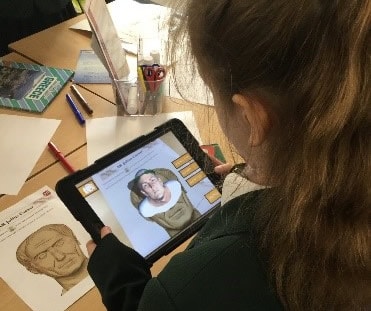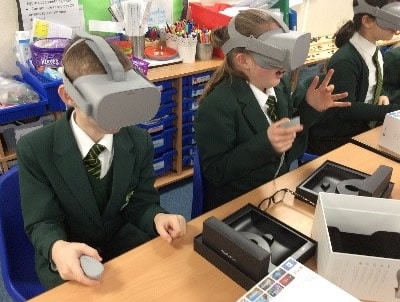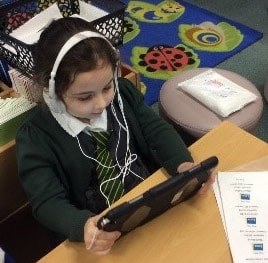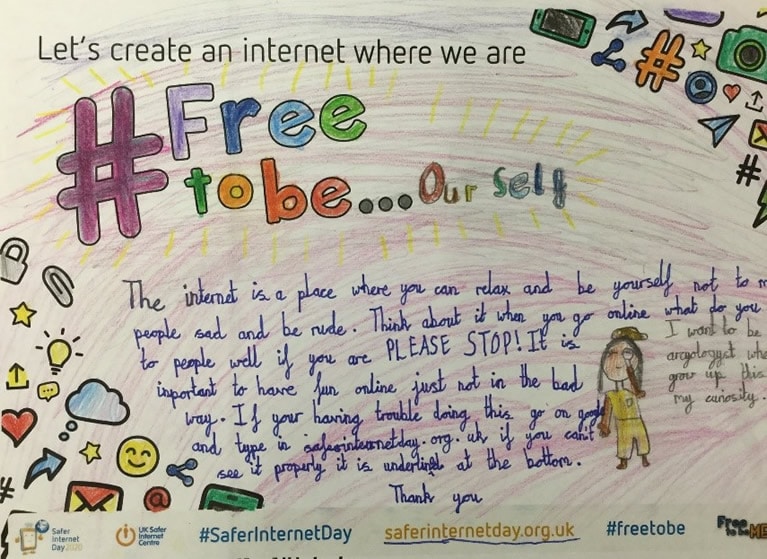Computing
Computing: Intent, implementation and Impact
Intent:
At Dashwood Banbury Academy we want to create safe, creative and confident digital users. As time moves on, we are surrounded by new technology that we know will be the centre of the pupils lives so, with this is mind, we need them to be prepared to cope in a fast moving digital world. Therefore our three whole school threads:

1) To understand and apply the fundamental principles and concepts of computer science including data and algorithm
2) To evaluate and apply information technology analytically to solve problems and to develop competency and
3) Having the confidence to connect and communicate with others safely and responsibly.
These threads are weaved purposefully throughout our units so that the pupils are able to learn new skills in a way that makes sense within the context they are studying. We aspire for all the skills we teach to be transferable and used to support all areas of the curriculum.
We want our children to understand that using the computers comes with a huge responsibility to use it safely; we want them to understand that they are responsible for making the right choices when online. We believe that our robust computing curriculum is designed as a prevention to lots of the issues that children may face either on social media or through gaming.
Implementation:
We have a comprehensive computing curriculum that has a clear progression of knowledge and skills. Computing will be implemented in the curriculum in a variety of ways:
- It may be taught weekly or in a block. Learning objectives will be clear and well sequenced in order to build upon the skills each session.
- Lessons that maybe blocked over a few lessons may focus on the teaching of a specific App or programme e.g scratch. Where appropriate we will link the programmes to the assignments so they are purposeful and relevant.
 Some lessons will use other subject areas to support the teaching of information technology skills e.g. in year 2 when the children are learning about the different needs of animals, they are creating a video to present the information of their chosen animal .They also will be developing their digital literacy skills through managing online information through appropriate use of search engines and evaluating the content the retrieve. Further examples of this is in year 4 where in their art topic they focus on digital art and in year 5 they use the green screen to facilitate their presentations. Reception also used cameras to record a nest they discovered in their outside area.
Some lessons will use other subject areas to support the teaching of information technology skills e.g. in year 2 when the children are learning about the different needs of animals, they are creating a video to present the information of their chosen animal .They also will be developing their digital literacy skills through managing online information through appropriate use of search engines and evaluating the content the retrieve. Further examples of this is in year 4 where in their art topic they focus on digital art and in year 5 they use the green screen to facilitate their presentations. Reception also used cameras to record a nest they discovered in their outside area.- From years 2-6 we use the online learning platform seesaw to upload their learning/presentations. When this takes place we would be covering the learning objective of I can publish my documents online regularly.
 We have our very own virtual reality equipment and a 3D printer to support areas of the curriculum.
We have our very own virtual reality equipment and a 3D printer to support areas of the curriculum.- We have excellent links with Futures Institute Banbury where the children in upper key stage two visit to extend the experiences of technology including access to virtual reality and other equipment.
- We use Barefoot computing units and resources to support certain assignments.
- Online safety lessons are taught weekly. Extra lessons and assemblies are set where issues arise to support and educate pupils.
Intended Impact:

- For children to enjoy all aspects of the computing curriculum. Information will be gathered via pupil and staff voice.
- For children to be safe when using programmes and online content, including social media and gaming. Weekly lessons and assemblies will ensure we do all we can to prevent incidents and educate the pupils about how to be responsible online.
- To educate children about having the right balance between the usage of technology and a healthy lifestyle.
- Outcomes will show a range of different presentation styles e.g. games, google documents
- Monitoring use of seesaw and systems, like the google drive, will allow us to assess the children’s abilities and confidence levels.
- Progress will be made in their reading ages with the support of Lexia, Accelerated reader and PiXL apps.
This can be accessed at home too to support homework and for parents to have a better understanding of the level the children are working at.
- Progress will be assessed through outcomes of assignments and a formative assessment will be given 3 x a year in our data collection points.
Computing Knowledge and Skills


